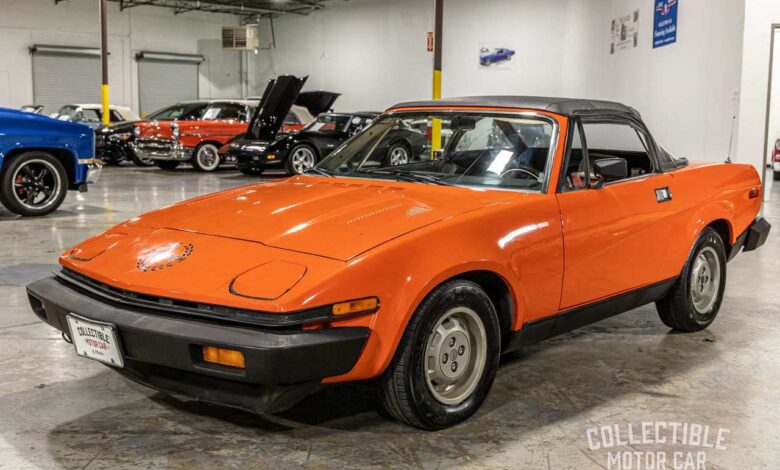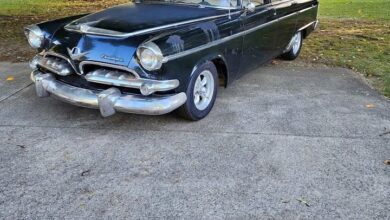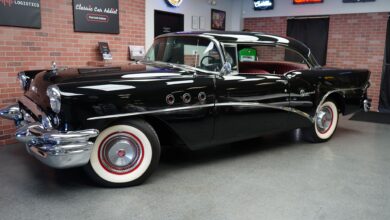1979 Triumph TR7

Now let’s head to Essex, ON, where this 1979 Triumph TR7 is up for grabs at just $2,000. Parked since 1993, this classic has recently undergone $1,000 worth of renovations, though it does need some work on the clutch master cylinder. Overall, it’s in pretty good shape and could be a fantastic starting point for a restoration project. You won’t want to miss this affordable legend!
The Design Revolution of the ’70s When the Triumph TR7 hit the market in 1975, it revolutionized automotive design. Crafted by the renowned Harris Mann, this car was dubbed “the wedge-shaped car” for its unique look. Its sharp lines, low profile, and bold grille distinguished it from other sports cars of the time, making a significant impact in the American market. Production began in Liverpool, England, and it quickly captured the hearts of American car enthusiasts.
Changes Over the Years The TR7 evolved significantly over the years. Initially produced in Speke, it moved to Coventry and then to Solihull, paving the way for design innovations. With both coupe and roadster versions available, it catered to drivers seeking an open-air experience. Powered by a standard 2.0-liter inline-four engine, it came with both manual and automatic transmission options. As emission standards tightened in the late ’70s and early ’80s, the TR7 adapted, enhancing its reputation as both environmentally friendly and performance-oriented.
TR7’s Cultural Impact The Triumph TR7 has left its mark not just on the roads but in popular culture as well. Its striking design made it a favorite in TV shows and movies, representing British sports car aesthetics. Today, it stands as a symbol of an era and offers a unique opportunity for both collectors and car enthusiasts to connect with the past. This 1979 Triumph TR7 invites you to experience the elegance and thrill of yesteryear.



